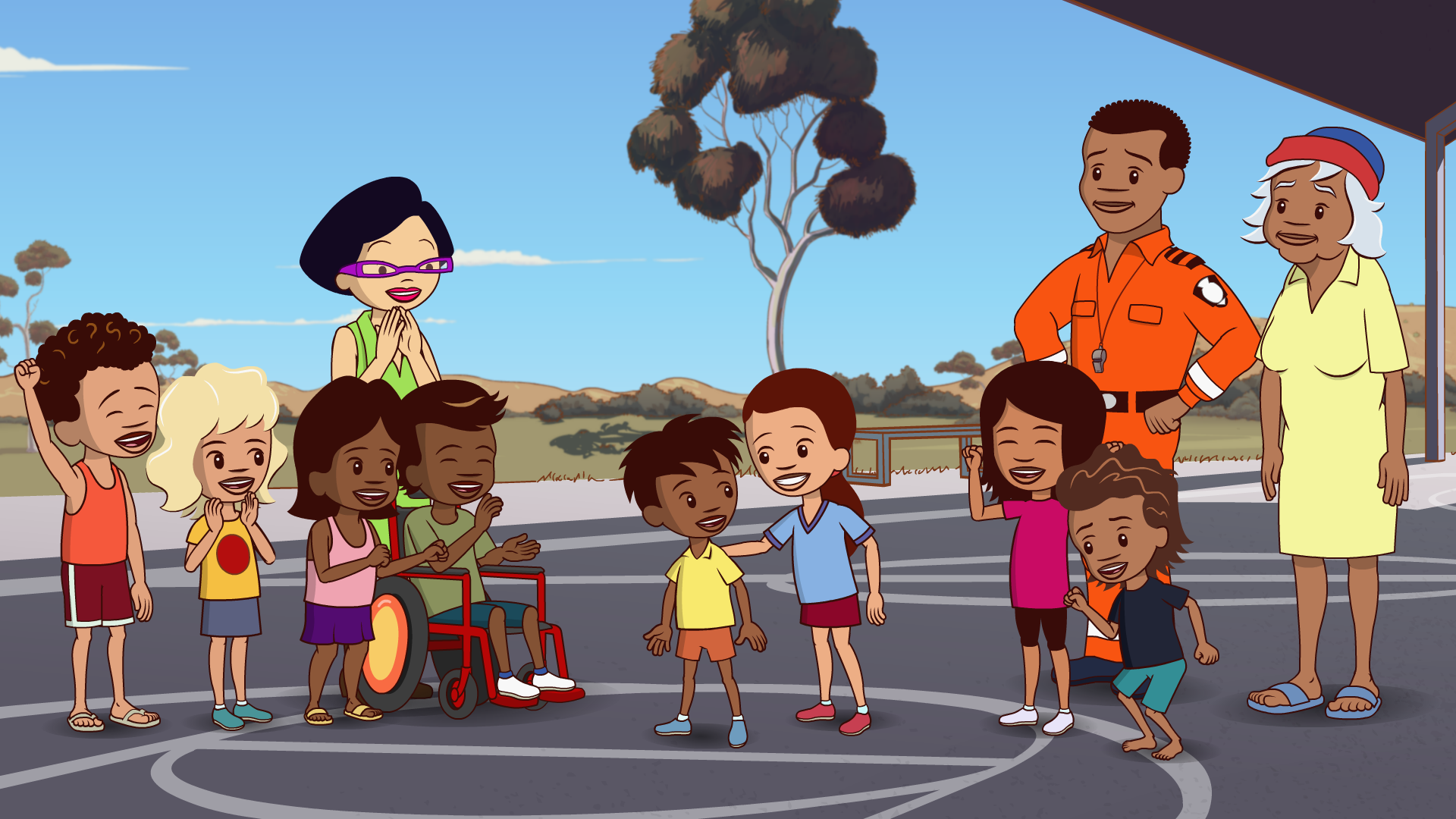
Friday, 5 Feb 2021
These teaching resources on events of national and international significance will liven up your 2021 lesson plans and excite and engage students.
By now you will have a good idea of how the first half of the school year will look but these highlights from international and Australian calendars are worth considering for lesson plans in Terms 1 and 2. To help you, we’ve identified teaching resources that will keep your students engaged and enthusiastic about learning.
Find more calendar highlights, plus links to accompanying teaching tools, in Teacher.
Term 1 2021:
Thursday 11 February: International Day of Women and Girls in Science
This day aims to highlight the often overlooked contributions of women to scientific advancement and to encourage girls to study STEM subjects – increasingly important in our high-tech world. Compoundchem.com is a source of reliable and beautifully produced infographics that make an often complex subject easily accessible. This graphic celebrates the women of the periodic table and includes links to biographical information about each contributor.
The annual Australian STEM Video Game Challenge is a great way to teach students in Years 5-12 valuable STEM skills, as well as general capabilities like collaboration and creative thinking. Find out what’s involved in this short video series with regular team mentor and Year 6 teacher Ben Wynne on Teacher. Also, registrations are now open for the International Mathematical Modeling Challenge for Australian secondary students.

(c) ACER: A young player roadtests winning games on the Australian STEM Video Game Challenge stand at PAX Aus.
Saturday 20 February: World Day of Social Justice
The United Nations says social justice is upheld when barriers people face because of gender, age, race, ethnicity, religion, culture or disability are removed. This short video for Year 10 students from the ABC looks at the struggle for native title in Australia [5:29], while their digibook on Australian celebrations will help students in Years 2 and 3 understand the range of cultural influences at play in our diverse nation. Their ‘choose your own statistics’ interactive resource helps students in the middle years better understand some important human rights issues.
Wednesday 3 March: World Wildlife Day
Earth is home to countless species of flora and fauna, almost a quarter of which are under threat from extinction in the next few decades. The World Wildlife Fund’s educational resources page has online quizzes, education toolkits, and wildlife arts and crafts, plus links to virtual ‘ask the experts’ events, all designed to teach primary and secondary students about the wonders of the natural world. For something a little more Australian-focused, the ABC has a collection of excellent classroom materials suitable for students in Foundation to Year 8.
Sunday 21 March: World Poetry Day
America’s youngest inaugural poet Amanda Gorman is newly famous for this performance at the recent Biden/Harris inauguration ceremony. In this TED Talk [7:19], Amanda asks older students to think about how to use their voices to effect change through the power of poetry. This excellent digibook from the Sydney Story Factory is an introduction to poetry for students in Years 3-8.
Monday 22 March: World Water Day
In the BBC TV series Project 17, 17-year-olds explore the world’s progress towards meeting the United Nations Sustainable Development Goals (SDGs). In this episode [4:11], Rwandan teenager Joyce talks about her quest for clean water (SDG 6: to ensure the availability and sustainable management of water and sanitation for all). Three episodes are also available as podcasts.
Closer to home, the Australian Water Association has an extensive library of teaching resources for primary students; National Water Week takes place in Australia in October (2021 date to be confirmed at the time of writing).

(c) NASA: NASA astronaut Ricky Arnold on a spacewalk in 2018.
Monday 12 April: International Day of Human Space Flight
NASA’s website has a range of teaching resources but, as a US-based site, they’re linked to American curricula. However, these pages for primary and secondary students contain hundreds of links to resources of more general interest, such as A Day in the Life Aboard the International Space Station, a history of lunar missions and a searchable video library. You can also stream live footage from the International Space Station or tune into NASA TV on YouTube.
Term 2:
Wednesday 28 April: Stop Food Waste Day
Oxfam’s Food 4 Thought modules are aimed at Years 7-10 and ask students to think about where food comes from, how access to food depends on where we live, and how the way we think about food shapes the people we become. This ABC story lists 25 educational resources to help students win the war on waste, including food waste, plus this segment of BTN [3:40] is a great basic primer and includes links to further sources of information.
Sunday 9 May: World Fair Trade Day
The global pandemic has hit already vulnerable smaller producers – including Fair Trade businesses – hard, so this year’s World Fair Trade Day is about perseverance and solidarity with small traders. Help your students make ethical choices by understanding how global trade works. The Oxfam Australia resource ‘What She Makes’ for Year 7-10 students explores the barriers garment workers face in seeking a living wage, and includes a game in which players argue the perspectives of various stakeholders in the Bangladeshi garment industry. And Fairtrade ANZ has curriculum-aligned resources on global trade for Years 5-6 and 9-10 plus a handy photo kit.
Monday 17 May: World Telecommunications and Information Society Day
The day celebrates the possibilities the internet and other information and communication technologies can offer societies, and shines a spotlight on the digital divide. While you will probably have incorporated digital education lessons in early Term 1 to coincide with Australia’s Safer Internet Day on 9 February, this is a great opportunity to revisit the resources on the eSafety Commissioner’s website: engaging animations, interactive games, short videos and quick links to quality online safety classroom resources, all designed to help students from lower primary to upper secondary stay safe online.
Saturday 29 May: International UN Peacekeepers Day
The Australian War Memorial is a comprehensive source of information on Australia’s contribution to peacekeeping campaigns around the globe. Their schools page contains an extensive list of resources for use in the classroom, plus you can take one of two virtual tours of the museum designed for primary or secondary students [around 30 minutes each]. This year’s International UN Peacekeepers Day theme is women in peacekeeping; check out this ABC BTN story [3:58] on the history and future of Australian women in combat.
20-26 June: Refugee Week
The Refugee Council of Australia has gathered together interactive games and activities from Amnesty International, the UNHCR, the Australian Human Rights Commission and more to create a handy single source of exciting classroom resources, while SBS has produced teaching guides for Years 9-12 to accompany its groundbreaking series Go Back to Where You Came From.

(c) ACER: A scene from Little J & Big Cuz.
4-11 July: NAIDOC Week
NAIDOC Week falls during school holidays for many states, and in the last week of term in South Australia, the Northern Territory and Tasmania, but it’s never a bad time to celebrate the history, culture and achievements of Aboriginal and Torres Strait Islander peoples with your students. The site has NAIDOC Week-specific teaching resources that are updated to reflect each year’s theme, or you’ll find a wide range of curriculum-linked activities and videos on Indigenous histories and cultures on SBS and the ABC.
And don’t forget our very own Little J & Big Cuz, a Logie Award-winning TV series for preschool and early primary students accompanied by an extensive suite of curriculum-mapped teaching resources. Series 3 hits screens later this year!
Want more? Why not try the PAT Teaching Resources Centre free for 30 days! With thousands of curriculum-aligned resources that link directly to PAT assessment data, it’s never been easier to find the perfect teaching activity for every student, and help all students grow in their learning.
This short video shows you how to get started.
Find out more about the PAT Teaching Resources Centre.
